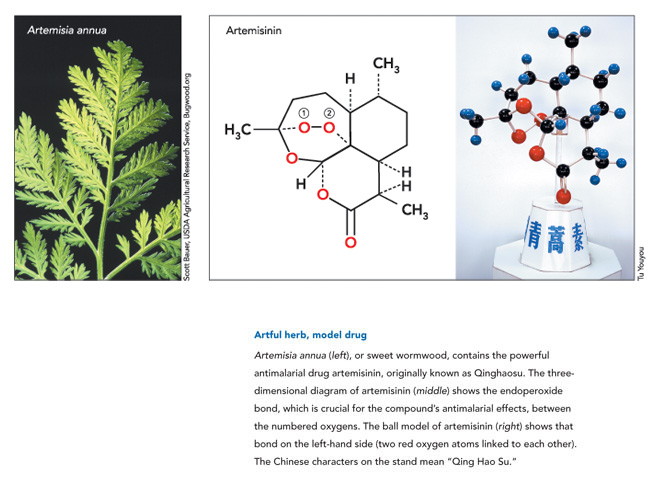- 目前所见最壮观的海啸视频 [2011/03]
- 建议旅日华人尽早逃命--日本核反应堆氢爆分析 [2011/03]
- 日本核堆再次起火,落砂机时报质疑为何日本不如中国 [2011/03]
- 贺梅姐弟妹三人平安回到中国(图、真相) [2011/08]
- 美国人7年前就已预见日本将成为核废墟 [2011/03]
- 日军暴露出战斗力低下 [2011/03]
- 为什么8.9级地震日本房子没倒 [2011/03]
- 桑兰案律师已经势成骑虎 [2011/05]
- 与贺梅父母的通话(2011/07/02) [2011/07]
- 海明应坦诚回应公众对他履历的怀疑 [2011/06]
- 贺梅将于近日返回中国 [2011/08]
- 桑兰案海明服软,承认错误、向被告道歉并作出赔偿 [2012/03]
- 技术歧视-拉登被击杀竟然是现场直播 [2011/05]
- 桑兰案状纸被法院拒收--搞路不清就上联邦法院 [2011/05]
- 日本核反应堆会发生核爆吗? [2011/03]
- 桑兰律师不长进,两个动议均被扔出法院 [2011/06]
- 网友呼叫海明 [2011/06]
- 贺梅母亲解答有关贺梅子妹三人来美国费用的问题 [2011/08]
- 群众游行导致大规模军事镇压其实是法制建设不完善的后果 [2011/06]
- 给贝克捐款的人应该至少替他把用于剥夺罗秦父母权的律师费交了 [2011/08]
- 贺梅来美的思维定式看劣等洋奴的弱智 [2011/08]
- 罗秦严正警告使用贺梅名义与形象骗捐的个人与团体 [2011/09]
- 为贝克募捐的人应该向贝克、罗秦道歉 [2011/08]
- 探讨贺梅案中可能存在的种族问题 [2011/09]
- 天安门挡坦克的青年证明解放军是人民的军队 [2012/06]
采访视频参见:http://www.laskerfoundation.org/awards/2011_c_interview_youyou.htm


博主二维码,光标右键点图片可下载
屠呦呦等科研人员根据公元300年东晋时期的中国古典医学典籍--葛洪《肘后方》--中记载的方法,成功从青蒿中提炼出了一种治疗疟疾的高效药物--青蒿素,并且确定了其分子结构。这种药物拯救了全世界数以百万计的人的生命。

令当代中国尴尬的似乎是,这项世界级成就与PRC建国以来的其他科学成就(两弹一星、核潜艇、杂交水稻、人工合成牛胰岛素等等)一样,都是在毛泽东时代完成。而改革开放以来,虽然在经济上取得了巨大的进步,在科技创新方面的伟大建树几乎为零。
一名诺贝尔经济学奖获得者在分析中国经济时指出:PRC建立时落后于印度,中国改革开放之前(而不是之后)的成就造成了中国大大领先印度的现状,中国改革开放的成就是建立在之前成就的基础上。
The 2011 Lasker~DeBakey Clinical Medical Research Award honors a scientist who discovered artemisinin and its utility for treating malaria. Tu Youyou (China Academy of Chinese Medical Sciences, Beijing) developed a therapy that has saved millions of lives across the globe, especially in the developing world. An artemisinin-based drug combination is now the standard regimen for malaria, and the World Health Organization (WHO) lists artemisinin and related agents in its catalog of "Essential Medicines." Each year, several hundred million people contract malaria. Without treatment, many more of them would die than do now. Tu led a team that transformed an ancient Chinese healing method into the most powerful antimalarial medicine currently available.
。。。。
The covert operation, named Project 523 for the day it was announced—May 23, 1967—set out to battle chloroquine-resistant malaria. The clandestine nature of the enterprise and the political climate created a situation in which few scientific papers concerning the project were published for many years, the earliest ones were not accessible to the international community, and many details about the endeavor are still shrouded in mystery. In early 1969, Tu was appointed head of the Project 523 research group at her institute, where practitioners of traditional medicine worked side by side with modern chemists, pharmacologists, and other scientists. In keeping with Mao Zedong's urgings to "explore and further improve" the "great treasure house" of traditional Chinese medicine, Tu combed ancient texts and folk remedies for possible leads. She collected 2000 candidate recipes, which she then winnowed. By 1971, her team had made 380 extracts from 200 herbs. The researchers then assessed whether these substances could clear Plasmodia from the bloodstream of mice infected with the parasite.
。。。

博主二维码,光标右键点图片可下载
- [09/13]看了三遍才看懂的英语句子
- [09/13]美国人的正义感值得中国人学习
- [09/14]什么是正义感
- [09/14]15年前对俄、中、日军事态势的分析
- [09/15] 毛泽东思想的又一次胜利?2011年Lasker~DeBakey临床医学研究奖
- [09/15]AMD八核推土机处理器突破8.4GHz--破纪录
- [09/16]如果桑兰说的属实,海明完蛋了
- [09/16]桑兰的控诉:性侵案被海明坑了
- [09/17]海明就性侵案无力的狡辩正好说明其误导
- [09/18]网骂、马甲、言论自由
评论 (0 个评论)
岳东晓最受欢迎的博文
其它[热点杂谈]博文更多
- JEFFSON:越来越土了
- 小百合吗:月亮里的嫦娥幸福吗?
- 黄笑吾:人间冷暖当自知
- 心如水:提高人的素质之我见 (原创)
- 谢盛友:谢盛友:李双江到底错在哪里?
- belgiumchina:迁都缓解北京交通阻塞和生态环境
- 赵123:真实的塞尔维亚人谈南斯拉夫的感受
- 自由之灵:后谈九一一: 另一组不能忘却的数字
- 乔雨风:李阳的英文, 其实不怎么样
- 丽水清江:清江闲话(6):嫦娥和吴刚为什么不会发生绯闻?
- RNSandi:爱国主义没有“原谅”
- 寒枫109:令人恶心的著名非律师
- 乔雨风:良心
- 高尔夫:如今 那可是······
- 平凡往事:中年箴言
- 岳东晓:中国的骄傲:中国革命
- 将错就错:你能接受外国男人的性观念吗?!--聊女儿的班主任老师和我的老公
- 穿鞋的蜻蜓:但愿人长久
- 我是虔谦:天涯安海, 咫尺中秋 (图)











